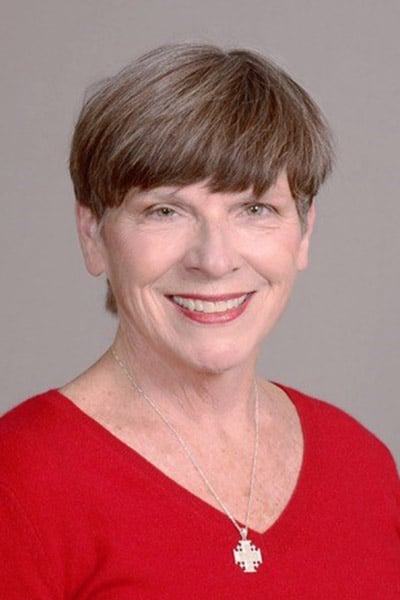Key points:
• A United Methodist laywoman shares about the abortion she had in the 1970s and says Texas’ new restrictions on abortion should challenge the church to speak candidly and constructively about human sexuality.
• Lynn Parsons writes that local churches should be sources of information for young people about birth control.
• The church needs to acknowledge its complicity in all the factors that can lead to an abortion, including poverty, she says.

Photo courtesy of the author.
Commentaries
In Texas in the mid-1970s, when I was 30 years old, I had an abortion. I had decided years before that I did not ever want children, and I had taken birth control pills from the age of 18 forward. At some point, my doctor suggested that I discontinue the birth control pills and begin using a copper IUD (intra-uterine device) instead. He explained that the chances of an unwanted pregnancy when using the IUD were less than 1% — better than the pill — and he joked that if it ever failed me, “I’ll take care of it.”
I became one of the lucky 1%, getting pregnant when I was not married, in the throes of an exciting career, working on a PhD, and firm in my resolve to not have children of my own.
My doctor made good on his promise and agreed to perform the abortion. I told my mother about my decision and — without any shaming or attempts to change my mind — she agreed to drive me to and from the “procedure.” It was a quick, relatively painless event. While I kept probing myself for emotions of regret or guilt about sinning against God, I couldn’t find any. My life moved on as before.
My story was only as non-eventful as it was for several reasons. I was a person of means, with good health insurance and a good relationship with my doctor. I was a mature adult with a good education and access to extensive information about both the medical and psychological impacts of abortion. I had a loving and supportive parent. I was secure in my faith and belief that I was a beloved child of God. And I was doing this legally, after Roe vs. Wade and before there were hysterical marchers lining up outside clinics.
Hearing the news about the new Texas abortion law made me glad that I am now living in California, although I understand the potential and probability that other states will pass the same kinds of laws. I also hear the outrage, particularly from some of the pastors in Texas who are my Facebook friends. And that brings me to my purpose for writing today.
Instead of outrage, where is the guilt I want those pastors — mostly men, but not all — to feel? Why don’t young people — from puberty at ages 10 or 11 or 12 — learn explicitly in church that they are loved and cherished, and not shamed or made to feel guilty, even if they have sex outside of marriage? Why aren’t churches sources of information about birth control and prevention of venereal disease for their youngest, most vulnerable members who are having sex, even if we want to pretend they are not?
What is the UM position on abortion?
The United Methodist Church affirms the sanctity of life in these two statements in the Social Principles:
• Our belief in the sanctity of unborn human life makes us reluctant to approve abortion.
• But we are equally bound to respect the sacredness of the life and well-being of the mother and the unborn child.
These statements, and others, place the United Methodist position on abortion firmly on the spectrum of life-based ethics rather than choice-based ethics, writes Ask The UMC, a ministry of United Methodist Communications. Read more here.
Why can’t we say the word “sex” out loud in church and acknowledge that it is a valid and wonderful part of the human condition? Why aren’t we teaching boys that they have just as much responsibility as girls for birth control and for the consequences of not using it? And why aren’t other clergy and laypersons like me standing up and admitting that they, too, had abortions and are still good Christians?
And lest we think that abortion is only an issue for careless teenagers, where is the guilt that we are not looking out for adult women in our communities who seek abortions because they know they cannot afford to have another child, either financially or at the human cost of caring for other children or aging parents? Where is the support for women and families struggling to feed themselves when the adults are working at minimum wage jobs that don’t meet their needs?
Where is the outrage about poverty? Where is the outrage that all the burdens of abortion fall on females — and NEVER on the males who created the need? What are we teaching in Sunday School? What are we teaching from the pulpit?
Instead of continuing to share our righteous indignation and outrage about the good Christian men and women of the Texas legislature who passed this law, why don’t we think more deeply about our complicity in the factors that have created the need for abortions — and do something about those?
Parsons is a retired educator and nonprofit consultant who attends Normal Heights United Methodist Church in San Diego. She is the former director of an anti-poverty initiative of the North Texas Conference of The United Methodist Church.
Like what you're reading? Support the ministry of UM News! Your support ensures the latest denominational news, dynamic stories and informative articles will continue to connect our global community. Make a tax-deductible donation at ResourceUMC.org/GiveUMCom.



